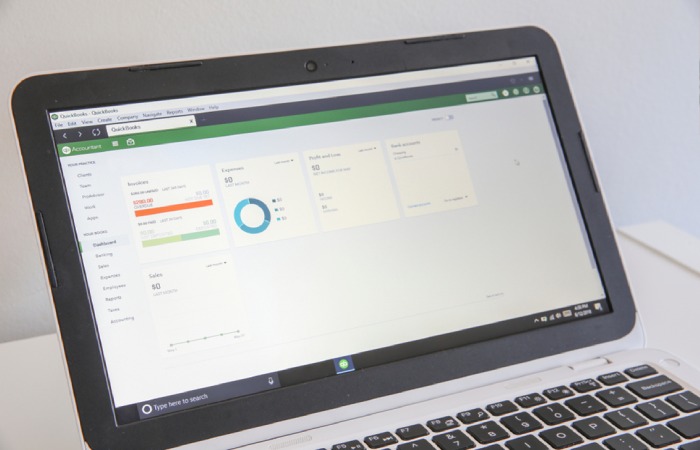Keeping your financial books straight with accurate bookkeeping is vital for small businesses—it’s a foundation for maintaining financial stability and setting you up for success. Good recordkeeping matters in every corner of your business – it can help you get the funding you need and ensures you’re keeping things above board with your taxes and accounting rules. It’s about making sure every part of your business is on track and primed for growth.
Explore the role of small business bookkeeping and the tools and technologies you can leverage to facilitate the process.
Table of Contents
Foundations for Accurate Bookkeeping
Bookkeeping is focused on maintaining clear and organized financial records. It involves being consistent, paying close attention to the details, and sticking to accounting rules to make sure your financial reports are clear and reliable. If you’re a small business owner, here are some fundamental areas to focus on:
● Income Tracking
This includes detailing various sources of income such as sales revenue, service fees, and rental or investment income. Businesses can analyze and report on different income streams by categorizing each source. This thorough documentation is crucial for understanding economic performance, planning budgets, and making informed business decisions.
● Expense Monitoring
Documenting every cost—from direct expenses such as raw materials, wages, and utilities to indirect expenses like advertising and administrative costs—is a critical aspect of expense monitoring. It ensures that all expenditures are accounted for, enabling more precise financial analysis, budgeting, and business strategy.
● Timely Transaction Recording
Logging transactions as they happen ensures that the data is current and reflects the business’s actual economic position at any given time. Using tools like accounting software (e.g., QuickBooks), companies can enter transactions in real-time, reducing errors and getting an up-to-date view of the business’s health.
● Bank Reconciliation
During bank reconciliation, the updated and correctly recorded transactions in the company’s books are compared against the bank statements. If transactions are logged promptly and accurately, the reconciliation process will be smoother, discrepancies will be easier to detect and resolve, and financial statements will be more consistent.
● Invoice and Receipt Management
By keeping financial transactions up-to-date, businesses can track what invoices have been issued, payments received, and expenses incurred. This not only helps keep records as error-free as possible but also assists in reconciling accounts and ensuring that all documents are readily available for reporting, analysis, or auditing purposes.
How Bookkeeping Helps Guide Business Decisions
As a small business, proper recordkeeping practices are essential for making sound managerial decisions for your company. Accurate documentation guides decision-making, such as:
● Assists with Budgeting and Allocating Resources
Minimizing errors is key to creating realistic budgets, enabling effective resource allocation and future expense planning, and ensuring business operations stay within budgetary limits. It provides clear insights to strategically invest in profitable areas and reduce spending on less effective ones.
● Helps You Oversee and Manage Cash Flow
Good bookkeeping gives you a clear window into your company’s finances, making it easier to see what your cash flow might look like down the road. It helps you spot potential money shortfalls early on, so you can take steps to keep your finances on track. Plus, understanding how your cash flow moves can really help with planning ahead to keep your finances stable and healthy.
● Supports Goal-Setting and Identifying Opportunities
Accurate records management helps you set realistic goals and watch your progress along the way. When your data is current and free from errors, it becomes a powerful tool for spotting exciting and profitable growth opportunities, whether that’s adding new products, exploring new markets, or even acquiring other businesses.

● Adhere to Tax Obligations
Small businesses are required to comply with tax regulations and reporting mandates. Using the right accountancy methods can assist your company with the following:
● Meeting Regulatory Requirements
Thorough records help you adhere to legal and regulatory requirements like the Sarbanes-Oxley Act (SOX) for corporate accountability and the Generally Accepted Accounting Principles (GAAP) for fiscal reporting. Professional bookkeeping and accounting oversight reduces non-compliance risk and associated penalties.
● Facilitating Smooth Tax Filing & Minimizing Tax Audit Risk
Maintaining correct and accessible financial information streamlines record compilation and reduces errors in tax filings, minimizing audit risks and penalties. Organized accounting also ensures legal compliance and facilitates quick retrieval of necessary data for review during an audit.
● Business Growth & Scaling
Meticulous records are essential for scaling your business and providing stakeholders with current and correct fiscal statements. Bookkeeping supports your business and sales operations by:
● Giving Investors a Clear Picture
Bookkeeping provides an in-depth picture of your business’s fiscal standing, enabling banks or private investors to evaluate the potential profitability of their investments. It also bolsters your creditworthiness, increasing your chances of securing the funding necessary for growth.
● Supporting Strategic Planning and Expansion
Correctly tracked financial information allows you to develop strategies for business expansion. Access to real-time financial information helps you identify expansion opportunities, strategically plan for market entry, and assess the feasibility of new ventures.
● Operational Efficiencies
Error-free and updated financial records streamline business operations, saving time and cost. It can help with the following:
● Streamlining the Financial Process
Effective bookkeeping keeps your financial records fresh and up-to-date, eliminating the need for repetitive document referencing and manual data entry. This streamlines your financial management, cutting down on admin work and giving you more time to concentrate on the heart of your business.
● Identifying Cost-Saving Opportunities
Disciplined recordkeeping lets you analyze your financial data to identify areas where you can reduce costs, increase efficiency, and improve profitability. Decrease unnecessary expenditures and boost your bottom line.
● Enhancing Overall Business Performance
Properly organized records help you monitor your business’s performance and adjust to achieve your goals. Understanding your company’s fiscal data allows you to make operational decisions that further your growth and success.

Tools and Technology for Proper Recordkeeping
There are many tools and technologies small businesses can leverage for their recordkeeping needs, such as:
● Accounting Software
Software such as QuickBooks simplifies records management by automating tasks, reducing the likelihood of mistakes, and offering instant access to business records from any location. It monitors all activities, enabling fast reporting and easy access to performance insights.
● Cloud-Based Solutions
Cloud-based accounting platforms enable remote access to budgetary information from any internet-connected location. Plus, they support convenient anytime anywhere collaboration with accountants and online bookkeepers.
● Automation and Integration
Automation tools can streamline repetitive tasks such as data entry and invoicing. They also integrate with other business software, like CRM and e-commerce platforms, ensuring seamless data flow.
Improve Your Business With Real-Time, Cloud-Based Bookkeeping
Accurate, well-organized records are key to the health and success of small businesses like yours. The data and insights uncovered provide a solid base for decision-making and helping your organization thrive and grow.
To bolster your accounting practices, you may also want to consider online bookkeeping services that provide access to experienced professionals who manage your recordkeeping needs. Remote live bookkeeping platforms unite expert one-on-one guidance with advanced software. This means you get efficient and meticulous regulation-friendly bookkeeping that’s just right for supporting your small business.


